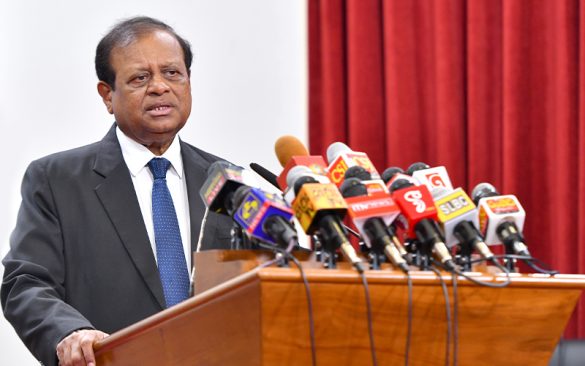Education Ministry Allocates Rs 100 Crore To Include Vedas Into Curriculum

Education Ministry Allocates Rs 100 Crore To Include Vedas Into Curriculum
Union Education Minister Dharmendra Pradhan has announced that the Central government has allocated Rs 100 crore for projects focused on incorporating Vedas and Indian languages into the curriculum. As part of this initiative, students who successfully clear the Class X (Veda Bhushan) and Class XII (Veda Vibhushan) examinations offered by Vedic boards will now be eligible to enroll in any college for higher education, including fields such as medicine and engineering.
This move signifies an effort to promote the study and understanding of Vedas and Indian languages in the education system. The allocation of funds aims to support projects that facilitate the integration of these cultural and linguistic elements into the academic curriculum. Additionally, the recognition of Veda Bhushan and Veda Vibhushan certifications for eligibility in higher education expands opportunities for students pursuing traditional Vedic studies.
The initiative aligns with the broader goal of preserving and promoting India’s cultural and linguistic heritage within the education system, providing students with a well-rounded and culturally enriched learning experience.
The decision to allocate Rs 100 crore for projects incorporating Vedas and Indian languages into the curriculum and recognizing Vedic education comes after the Association of Indian Universities (AIU) recently agreed to acknowledge Vedic education. This development is particularly beneficial for students affiliated with Vedic boards, including the Bharatiya Siksha Board (BSB), Maharshi Sandipani Rashtriya Veda Sanskrit Shiksha Board (MSRVSSB), and Maharshi Sandipani Rashtriya Ved Vidya Pratisthan (MSRVVP).
With this recognition, students who have cleared the Class X (Veda Bhushan) and Class XII (Veda Vibhushan) examinations offered by these Vedic boards will not need to take another examination conducted by the National Open Schooling Examination. The move aims to streamline the educational pathways for students pursuing Vedic studies, providing them with seamless access to higher education, including disciplines like medicine and engineering.
By recognizing Vedic education within the national education framework, the government seeks to promote and preserve traditional Indian knowledge systems, fostering a more inclusive and culturally enriched education system.

Previously, students from other educational boards were required to clear exams conducted by the National Open Schooling Examination (NOSE) to be eligible for admission to colleges for further education. However, with the recent recognition of Vedic education and the decision to allocate Rs 100 crore for projects integrating Vedas and Indian languages into the curriculum, students who have successfully cleared the Class X (Veda Bhushan) and Class XII (Veda Vibhushan) examinations from Vedic boards will no longer need to sit for an additional NOSE exam.
During the release of the Sanskrit translation of Laxmi Puran in the Central Sanskrit University on Saturday, Education Minister Dharmendra Pradhan emphasized the importance of assimilating the knowledge, values, and messages of Vedas. He highlighted how this integration can contribute to societal progress, social justice, women’s empowerment, and women-led development. The move reflects a broader initiative to infuse traditional knowledge systems into the educational landscape, aligning with cultural values and promoting a holistic approach to education.
Education Minister Dharmendra Pradhan expressed his hope that the Central Sanskrit University would play a pivotal role in connecting new generations with Indian languages, literature, and heritage, including Sanskrit. The release of the Sanskrit translation of Laxmi Puran at the university serves as a step in this direction. Laxmi Puran is a devotional lyrical poetry composed by the revered saint poet Balaram Das in the 15th Century A.D. in Puri, Odisha.
Balaram Das, often referred to as the “Balmiki” of Odisha, is recognized for his significant literary contributions, including his “magnum opus” ‘Ramayan’ in the Odiya language. Belonging to the ‘Panchasakha’ era of Odiya literature, Balaram Das is renowned for promoting devotion and Brahma Jnana (knowledge of the ultimate reality or the Absolute). The inclusion of such literary works in Sanskrit serves to preserve and promote the rich cultural and linguistic heritage of India.






